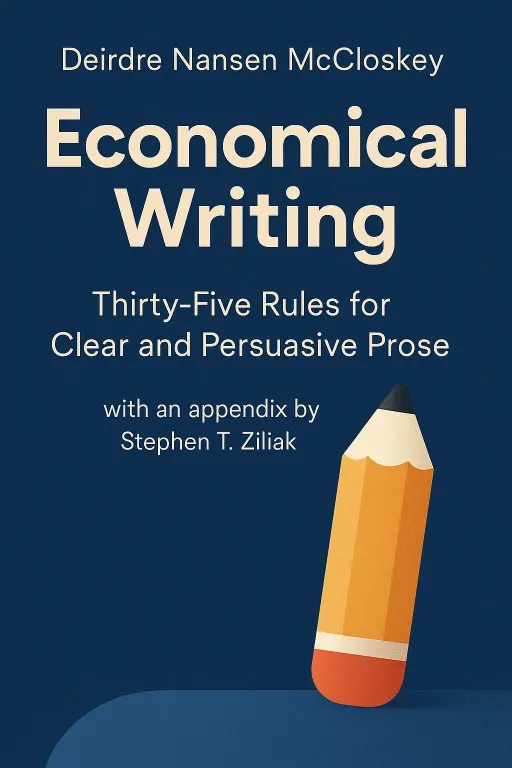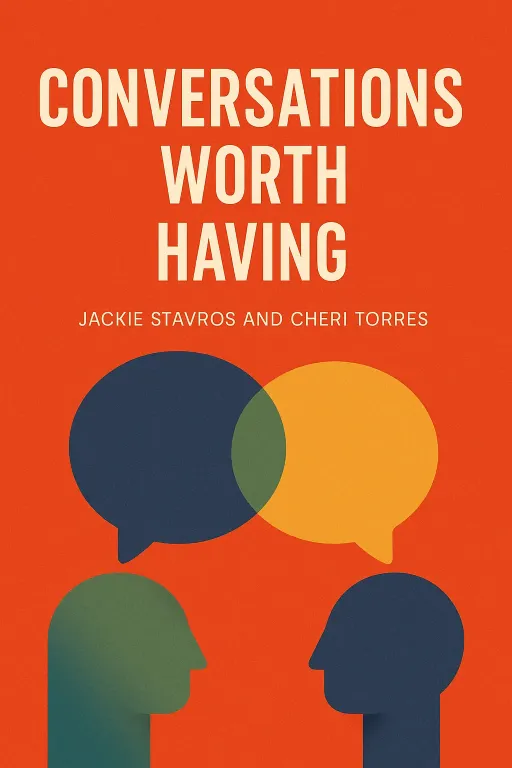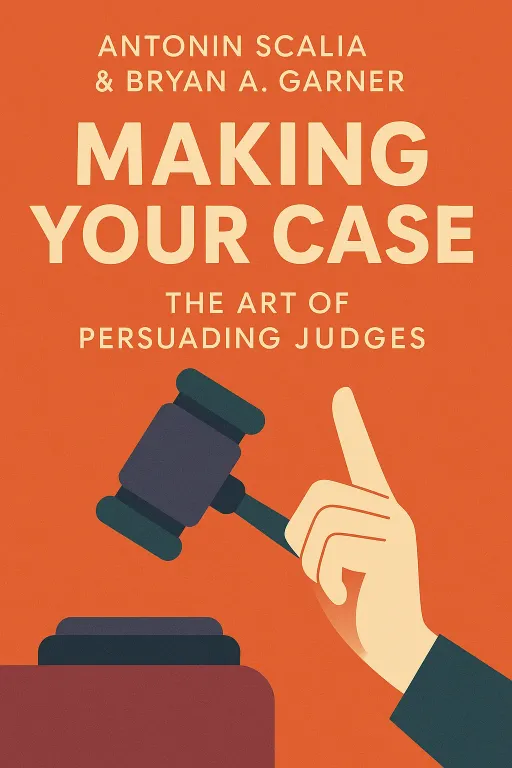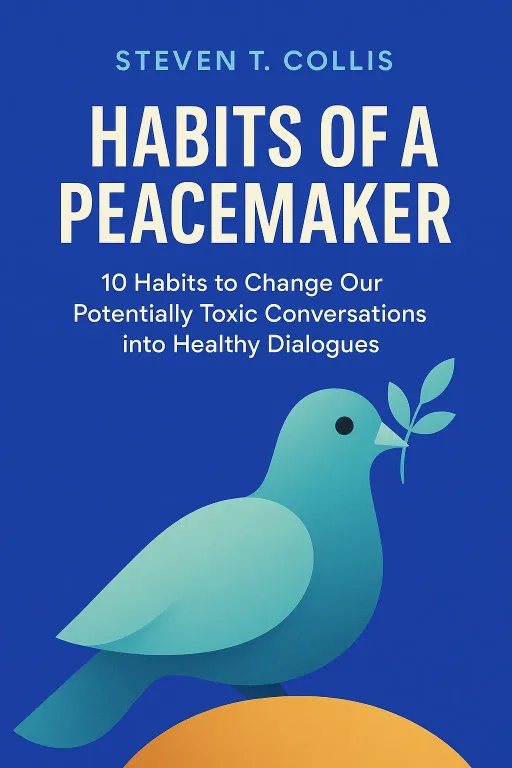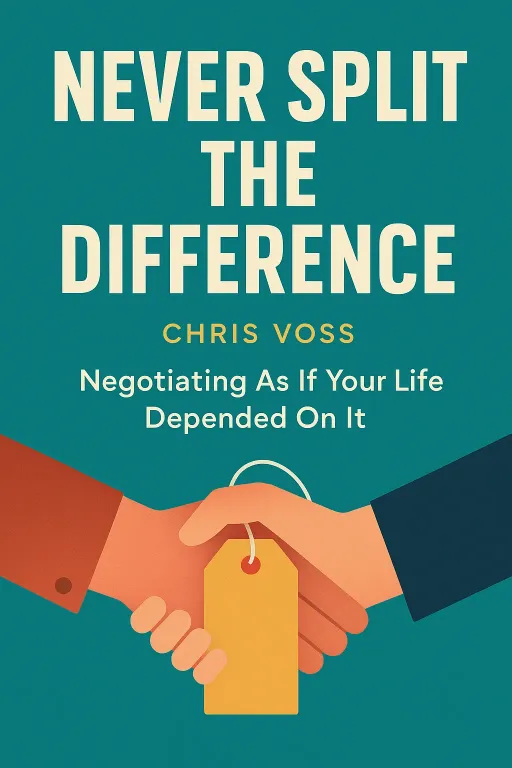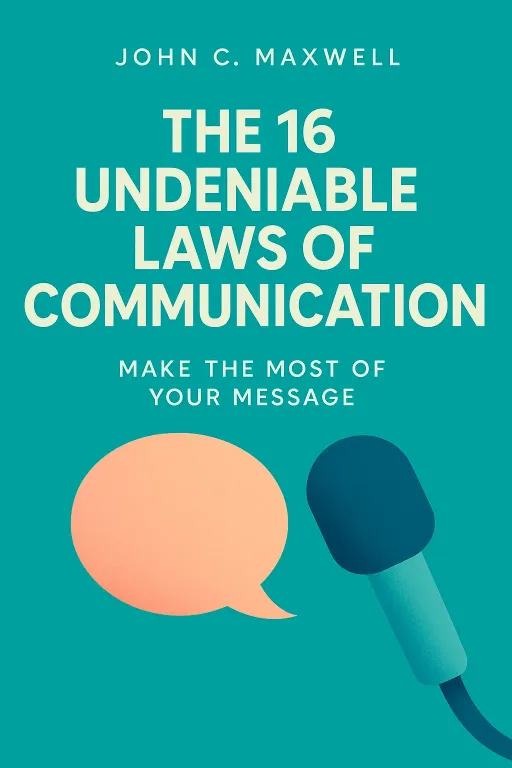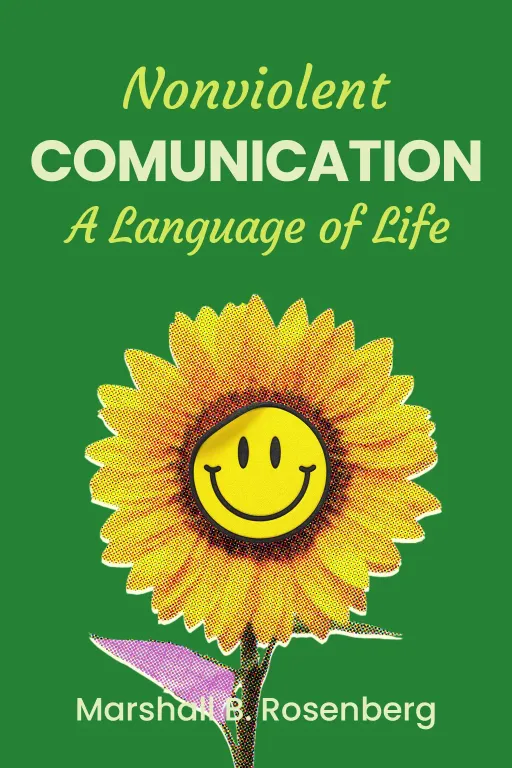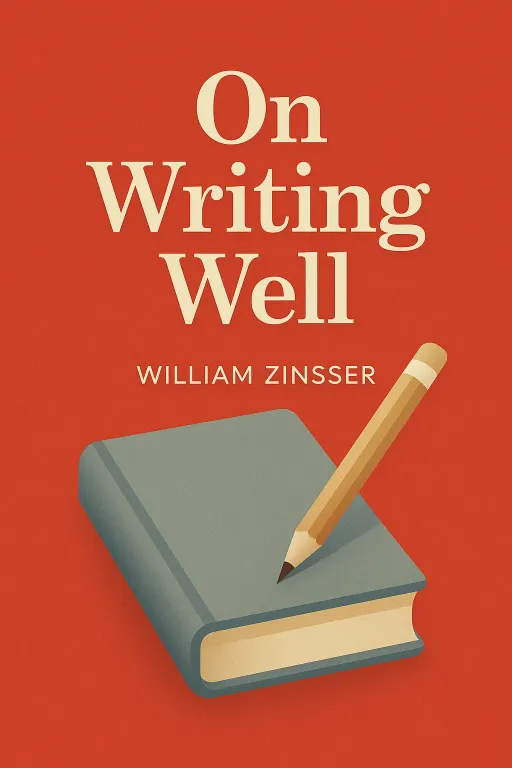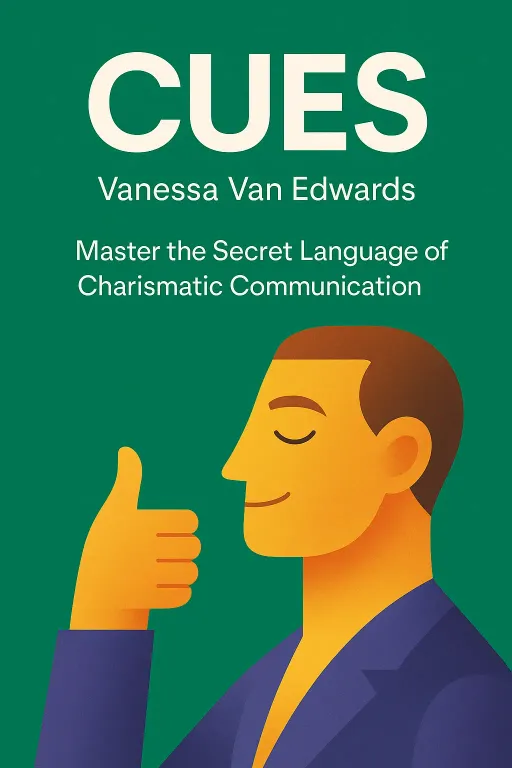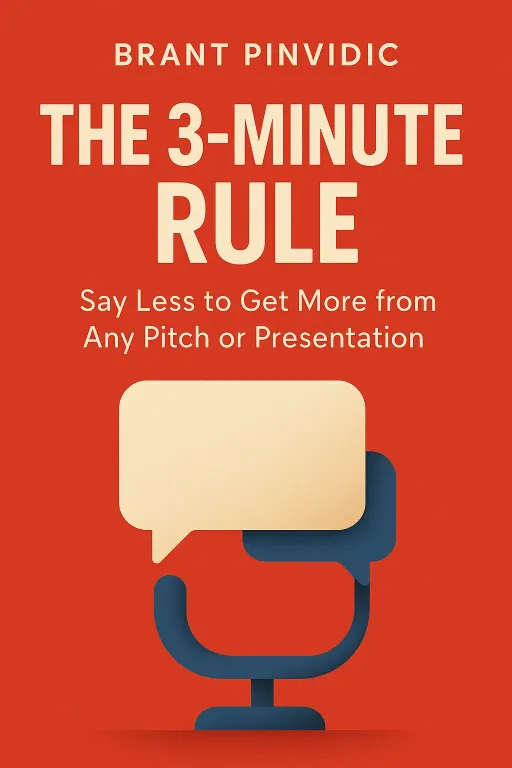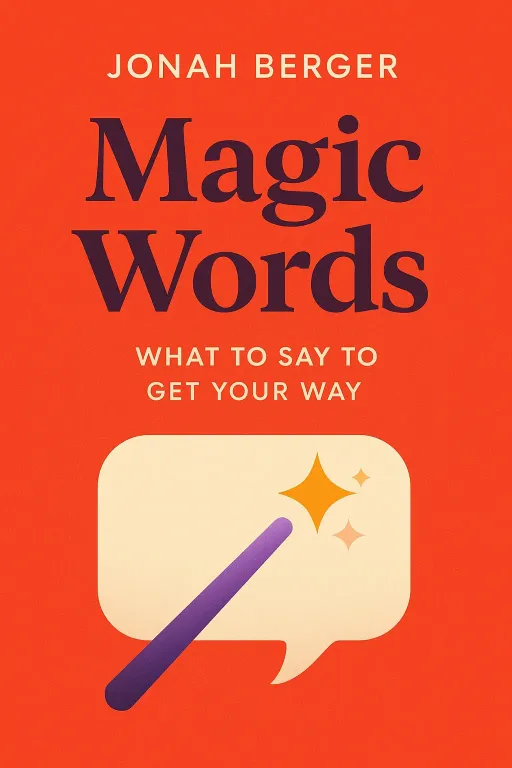
The Hidden Power of Words
13 minWhat to Say to Get Your Way
Golden Hook & Introduction
SECTION
Michelle: A single word—'because'—can make people over 50% more likely to let you cut in line, even if the reason you give is completely nonsensical. Mark: Hold on, what? Nonsensical how? Like, "Can I cut in line because... the sky is blue?" Michelle: Almost. The classic Harvard study had researchers ask to use a Xerox machine. When they said, "May I use the Xerox machine, because I have to make copies?"—which is a meaningless reason, obviously—compliance jumped from 60% to over 90%. Mark: That is absurd. Everyone in line has to make copies. That’s why they’re in the line! Michelle: Exactly. It shows that our brains are just wired to respond to the structure of a reason, not always the logic. And that’s the kind of subtle, powerful linguistic trick we're diving into today with the book Magic Words: What to Say to Get Your Way by Jonah Berger. Mark: I’ve heard of this one. The title has a slightly… Machiavellian ring to it. Like it’s a manual for manipulation. Michelle: I can see why you’d think that, and we can definitely talk about the ethics. But what’s fascinating is the author, Jonah Berger. He isn't just a writer; he's a marketing professor at Wharton. He uses massive datasets and machine learning to dissect language. So these 'magic words' aren't just clever tricks—they're patterns backed by some serious science. Mark: Okay, that’s a different angle. So it’s less about dark arts and more about the hidden physics of language. I’m in. Where do we start? Michelle: Well, maybe the most powerful magic isn't about persuading others, but about persuading ourselves. It starts with the words we use to define who we are.
The Invisible Scripts: How Language Shapes Identity and Agency
SECTION
Mark: What do you mean, "define who we are"? Like affirmations? "I am successful, I am strong"? Michelle: In a way, but much more subtle and, frankly, more effective. Berger points to fascinating research on how turning actions into identities changes behavior. He tells this incredible story about a study at Stanford's nursery school. Mark: Preschoolers as research subjects. My favorite. What happened? Michelle: The researchers wanted to see if they could get kids to be more helpful, specifically with tidying up. They divided the four- and five-year-olds into two groups. To the first group, they’d say, "Would you help clean up?" A simple verb. Mark: Makes sense. That’s what I’d say. Michelle: But to the second group, they made a tiny change. They asked, "Would you be a helper?" They turned the verb, 'help,' into a noun, 'helper.' An identity. Mark: Okay, that seems like a trivial difference in phrasing. I can’t imagine that mattered much to a five-year-old who just wants to play with blocks. Michelle: You would think so. But the children asked to 'be a helper' were almost a third more likely to clean up than the ones who were just asked to 'help.' Mark: A third? Just from changing one word? That seems almost too simple to be true. How? Michelle: Because asking someone to 'help' is a transactional request about a fleeting action. But asking them to be a 'helper' is an invitation to adopt a positive identity. Kids want to be seen as helpers. It’s not about the task anymore; it’s about who they are. The same thing happened in a voter turnout study. Encouraging people to 'be a voter' increased turnout by 15% compared to just asking them to 'vote.' Mark: Wow. So if I want to get fit, I should stop telling myself 'I'm trying to go to the gym more' and start thinking 'I am a person who goes to thegym'? It's about embodying the identity, not just doing the action. Michelle: Precisely. And this idea of agency gets even more powerful when you look at how we talk about our limitations. Berger brings up another killer study on the difference between two simple phrases: 'I can't' and 'I don't.' Mark: 'I can't eat cake' versus 'I don't eat cake.' They sound pretty similar. Michelle: They sound similar, but psychologically, they are worlds apart. 'I can't' implies an external constraint. It’s a rule someone else made for you, and you’re being forced to follow it. It feels restrictive, and part of you wants to rebel against it. Mark: Right, like your doctor told you not to, or it’s against your diet plan. It’s a burden. Michelle: Exactly. But 'I don't'… that’s a statement of identity. It’s a choice you’ve made. It’s part of your personal code. It’s not an external rule; it’s an internal principle. It signals empowerment and agency. In studies, people who were told to use "I don't" when faced with temptation were more than twice as successful at sticking to their goals. Mark: That’s a huge difference. It’s like drawing a line in the sand for yourself, while 'I can't' is like someone else drew it for you, and you're just trying not to step over it. But I have to ask, couldn't this be used negatively? If you constantly tell a kid they're a 'troublemaker,' are you essentially programming them to live up to that label? Michelle: That is the critical and sobering flip side. Berger’s work absolutely implies that. These tools are neutral; their impact depends on the intent. Labels, whether we give them to ourselves or others, are powerful scripts. They can be empowering, like 'helper' or 'voter,' or they can be cages, like 'troublemaker' or 'failure.' It forces a certain responsibility on us, in how we talk to our kids, our colleagues, and especially ourselves. Mark: Okay, so we can use language to script our own identity for the better. But what about influencing others? I feel like that always comes down to confidence. You have to project power. Michelle: Exactly. But what 'sounding confident' actually means is full of surprises. It’s not about being the loudest person in the room.
The Confidence Paradox: Speaking with Power While Asking for Help
SECTION
Mark: So what is it then? If it's not about being loud and assertive, what is 'powerful language'? Michelle: Berger references the groundbreaking work of an anthropologist named William O’Barr, who spent months in courtrooms in the 1980s, just recording and transcribing everything. He noticed a distinct difference in how professionals—like expert witnesses—spoke, compared to ordinary witnesses. Mark: And what was that difference? Michelle: It came down to a few key things. The 'powerless' style was full of hedges and hesitations. Words like 'I think,' 'sort of,' 'maybe,' and filler words like 'uh' and 'um.' It conveyed uncertainty. The 'powerful' style was direct. It avoided those hedges. It was clean and assertive. Mark: So it’s about sounding certain. Michelle: Yes, and the effect was staggering. O’Barr had actors record the same testimony in both styles. When people listened, they rated the 'powerful' speaker as more credible, more competent, more trustworthy. And here’s the kicker: they thought the plaintiff deserved thousands of dollars more in damages just based on the witness’s speaking style. Style trumped substance. Mark: That’s terrifying, actually. That your choice of words could literally cost someone thousands of dollars. So, in a team meeting, I should avoid saying things like, "Well, I kind of think we should maybe consider this option..." Michelle: That’s the perfect example of powerless language. The powerful version would be: "This option offers three clear advantages." It’s direct. Another subtle trick Berger highlights is using the present tense. Saying "This restaurant makes great tacos" is more persuasive than "This restaurant made great tacos." Mark: Why? Michelle: Because 'made' describes a past, subjective experience. But 'makes'… that suggests an enduring, objective truth about the world. It’s a statement of fact, not just an opinion. It radiates confidence. Mark: Okay, this is all making sense. Be direct, ditch the 'ums' and 'maybes,' speak in the present tense. It’s a clear playbook for projecting confidence. But hold on. If absolute confidence is so key, why does the book also say that asking for advice can make you look smarter? That feels like the complete opposite. Michelle: Ah, you’ve found the paradox! And that’s what makes this so brilliant. It’s not about faking a bulletproof sense of certainty all the time. It’s about knowing which tool to use. In a contentious situation, or when you want to build a connection, expressing a little doubt can actually make you more persuasive. Mark: How is that possible? Michelle: Because it makes you seem less threatening and more open-minded. But the real magic happens when you ask for advice. There was a study where participants worked on brain teasers with a computer-simulated partner. Some partners just sent a greeting. Others sent a greeting and asked for advice on the puzzles. Mark: And I’m guessing the ones who asked for advice were seen as less competent. As weak. Michelle: That’s what our intuition tells us. But the result was the exact opposite. The partner who asked for advice was rated as more competent. Mark: What? Why? Michelle: Because asking for advice is a form of flattery. It strokes the advice-giver's ego. The internal monologue of the person you ask is, "Well, my opinions are clearly valuable, so this person must be smart for recognizing that and asking me." It builds an instant connection and makes them see you in a more positive light. It’s a powerful tool for building rapport. Mark: So it’s a delicate dance. Project confidence in your own ideas, but show the wisdom to seek it in others. That’s a much more nuanced picture of influence than just "be confident." Michelle: And that's the perfect bridge. True influence isn't just about power or identity; it's about making your message land with another human being. And for that, you need two final ingredients: concreteness and emotion.
The Language of Reality: Making Ideas Concrete and Emotional
SECTION
Mark: Concreteness. That sounds… a little boring, to be honest. Like something from a technical writing manual. Michelle: It sounds boring, but its effects are anything but. Berger tells this story about a massive analysis of customer service calls for a big online retailer. They transcribed hundreds of calls and analyzed the language of the agents. Mark: What were they looking for? Michelle: They were looking for what made customers feel satisfied. And one of the biggest predictors was the agent's use of concrete language. For example, a customer calls and says, "I can't find the gray T-shirt I was looking for." An agent using abstract language might say, "Okay, I’ll go look for that." Mark: Seems fine. Polite and to the point. Michelle: It is. But an agent using concrete language would say, "Okay, I’ll go search for that T-shirt in gray." By simply repeating the specific details—'T-shirt,' 'gray'—the agent signals, "I heard you. I understood your specific problem." It makes the customer feel seen and validated. Mark: Okay, I can see how that would feel better. But does it really make a difference in the end? Michelle: A huge one. In a separate analysis of email interactions, they found that when employees used more concrete language, customers spent 30 percent more with the retailer in the following weeks. Mark: Whoa. So words are literally money. That one small change—repeating back the concrete details—led to a 30% increase in sales from those customers? Michelle: Yes. Concreteness builds trust and signals competence. It overcomes what’s called the 'curse of knowledge,' where we get so caught up in our own abstract ideas that we forget the person we’re talking to needs clear, tangible details to follow along. Mark: It makes the abstract real. Michelle: Exactly. And the other key to making things real is emotion. A list of facts might be true, but a story with an emotional arc is what we remember. Berger talks about the power of building an emotional "roller coaster." He points to the work of podcast host Guy Raz, who is a master at this. Mark: Oh, I know his style. He doesn't just ask about the successes. He digs into the failures, the moments of doubt, the heartbreaks. Michelle: Right. He builds a narrative with highs and lows. That emotional volatility is what keeps us engaged. It's the same reason we love movies. A story where everything is always great is boring. We need the struggle to make the triumph meaningful. This is what Berger calls the "pratfall effect"—competent people who show a moment of vulnerability or make a small mistake are actually seen as more likable. It humanizes them. Mark: So being a little imperfect can actually be a magic word in itself. It makes you more relatable. Michelle: It makes you real. And that's what all of this is about. Using language not to create a false, perfect image, but to connect more authentically and effectively.
Synthesis & Takeaways
SECTION
Mark: So when you boil it all down, after all these studies and stories, what's the one big takeaway here? Michelle: I think it’s that words aren't just labels we put on things. They are the levers we use to build our reality. They construct our identity when we choose 'I don't' over 'I can't.' They build or break connections when we choose to ask for advice. And they make abstract ideas real when we choose concrete, emotional language. The book is called Magic Words, but the real magic is realizing we've been wielding this power all along, just unconsciously. Mark: So the challenge for all of us is to be more conscious of it. To be more deliberate with the words we choose, both for ourselves and for others. Michelle: Exactly. You don't have to overhaul your entire vocabulary overnight. Maybe just pick one thing. This week, try swapping one 'I can't' for an 'I don't' and just see how it feels. Notice the shift in your own sense of agency. Mark: I love that. A small, concrete experiment. I'd love to hear how that goes for people. If you try it, let us know what you tried and if it made a difference. Find us on our socials and share your story. Michelle: It’s a powerful reminder that the most complex tool we have is the one we use every single day. Michelle: This is Aibrary, signing off.
